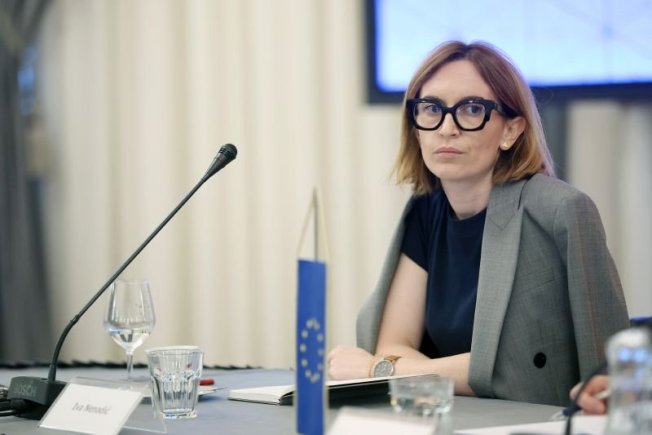Interview
It’s time to test the power of EU law against the tech platforms
Iva Nenadic: ‘The rules are there, but in the end it all depends on the political will to implement them.’

“The big tech companies are fighting against the EU’s rules. This is an important signal: it's time for the Commission to implement the regulations that were recently adopted.”
We spoke with Prof. Iva Nenadic, an expert on the regulatory tools for online platforms and their consequences for democracy at the Center for Media Pluralism and Freedom at the European University Institute (EUI) in Florence.
Professor, the EU Commission has said that it has been closely following the case of AfD leader Alice Weidel's livestream on X. Is it still not clear whether Musk is violating European norms, particularly the Digital Services Act (DSA)?
There is an ongoing discussion, but we are certainly facing a “stress test,” which will tell us at what level the European digital toolbox actually works. We are also certainly at a turning point. Until now, online platforms had been legally classified in a different category than traditional media. The rules allowed platforms not to be directly responsible for the content that was posted on them. With this move, however, Musk is showing once and for all that X has changed.
What do you mean in more precise terms?
That now, the Musk-owned social media platform is directly making a space for political debate possible, which is also given, in a certain way, an editorial framework. So I would say that we are facing a new era for the conceptual and legal understanding of what digital platforms are. And of the role they can play in elections.
What is the new element that changes the paradigm?
It’s one thing for AfD to post its content on social media, always taking into account possible violations of the rules, such as in the case of hate speech. It’s another thing for Musk personally, and as the owner of the platform, to intentionally provide time and space to a political party. Thus, he is in a certain way behaving like a publisher of a traditional media outlet, but the rules of political equidistance, balance and a level playing field that news outlets are required to abide by in a democratic context are not applied to his broadcasts. In short, what Musk is doing is setting a troubling precedent for the integrity of electoral competition, in Germany and beyond.
At a basic level, what do the European rules require?
The DSA is an attempt to make platforms more transparent and accountable with respect to the spread of misinformation. Platforms are required to systematically assess the risk of abuse, as well as to set up content moderation. And when the use of social media would lead to negative effects on fundamental rights and democracy, it is up to the platforms to identify the dangers and act accordingly.
The EU has had a case open against X for a long time, but it hasn’t come to any conclusion, nor has any action been taken so far. Are the rules put in place by Brussels effective?
We need to look at how the DSA came about. From the start, the EU relied on the goodwill of the platforms, believing in the value of the cooperative spirit. However, as soon as Musk bought Twitter and turned it into X, he immediately abandoned the voluntary code of self-regulation. This was the first wake-up call that the goodwill of the platforms is not enough. And a few days ago, we saw another serious sign, with Mark Zuckerberg's announcement that he is abandoning fact-checking (only in the U.S. for now). The rules are there, but in the end it all depends on the political will to implement them.
Originally published at https://ilmanifesto.it/ingerenze-delle-piattaforme-le-regole-ue-ci-sono-ora-serve-la-volonta-politica on 2025-01-10
